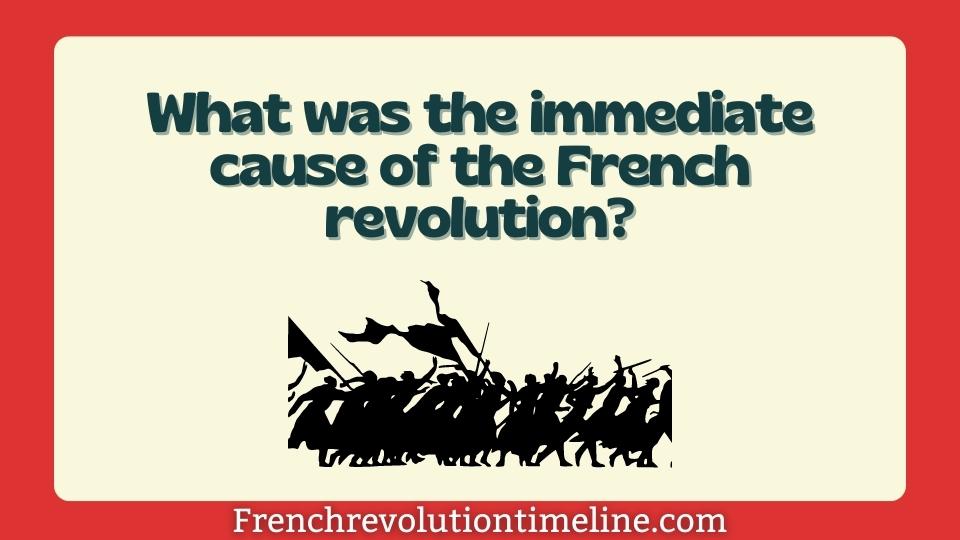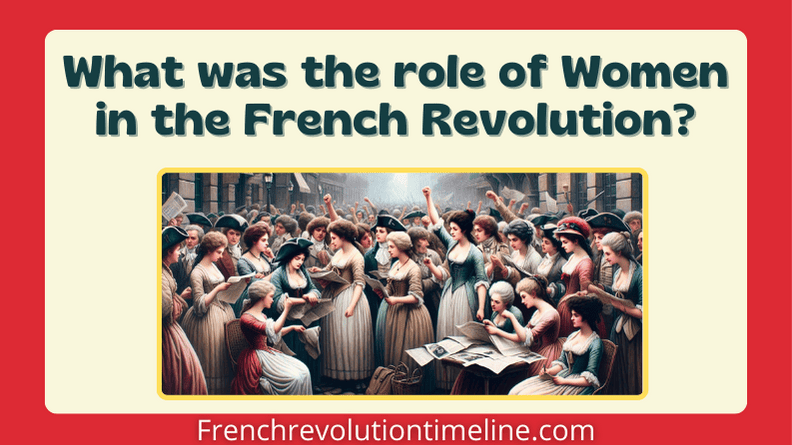The Great Fear was a popular peasant movement of collective fear when rumours spread rapidly among the peasants that ‘the aristocrats used foreign troops and vagrants to attack and overthrow the peasants’. Worrying peasants picked up weapons and attacked the aristocrats’ mansions (local aristocrats who owned farms as feudal lords), killing, riots, and looting.
Origin of the Great Fear
The Great Fear, as an expression of the panic of the peasantry a few months after the starting of the French Revolution, does not have a single cause, but rather it is multi-causal, these causes being the subject of debate even today.
One reason for the Great Fear was the terrible famine that started in 1787 and continued to worsen due to the conflict between the absolutist monarchy, the nobility and part of the clergy against the Third Estate.
Further in France, the unseasonable climate of 1788 spring, drought, and summer drastically decreased harvests and caused crop failures. Also, due to the Russo-Turkish War (1787–1792), grain imports from Eastern Europe became impossible. It affected the farmers badly; as a result, some people became beggars and roamed the streets begging, which led to increased social unrest.
However, the difficulty of grain and bread shortages and food shortages played a major role in deciding when the revolution broke out.
The social order in France was very fragile. This was because many generations of people had gone hungry, and the economy was not doing well then. Plus, people were very easily influenced by rumours. All of these things together caused the “Great Fear of 1789.”
From panic to rage
People were getting more and more worried about what was happening in Paris. No one knew what the future would hold, and there was a real possibility that France would fall into anarchy (lawless society).
The peasants, fearing being overwhelmed by a possible gang of bandits, would come and attack them. So, they steeled themselves and formed militias to protect themselves. However, such bandit hordes never came.
It was then that a buzz began to spread throughout the peasantry: the nobility had spread the rumours about the horde of bandits to sow panic and confusion among the peasantry and thus weaken or prevent the actions of the Third Estate.
When the peasants found out that they had been deceived and that they had been afraid of an enemy that, in reality, did not exist, that panic turned into anger and the latter turned into massive revolts. Peasants began to attack castles and abbeys; the wealthy population was energetically preparing for self-defence; armed detachments were formed. In addition, peasants took the grain and burned important files and documents.
The revolts in France broke out in different provinces at the same time. The revolts happened in the Franche-Comté, Alsace, Mâcon, Basse-Normandie, Heano County, Vienne, Dauphiné and Vivarés regions.
The most radical group of peasants, the ones who turned against the privileged class and even against the bourgeoisie itself, would attack stately properties, leaving fires, death and destruction in their wake. Consequently, these peasants would become what they had feared days before… “bandits”.
In fact, the peasantry’s greatest terror was that they were at the bottom of French society and thus most vulnerable. That is why it was so frightening when rumours spread about possible attacks, destruction and looting carried out by swarms of roaming vagrants and powerful gangs of marauding robbers.
The event of the great fear lasted from July 20 to August 6, 1789, putting most of the French people in a mass hysterical state, triggering the French Revolution, and dragging peasants into the political arena.
What was the consequences of the Great Fear?
From July to August 1789, the peasant revolt spread throughout France’s rural areas, and the revolution galvanized energy for social reform. They wanted to end the privileges of the nobility forever by burning the terrier books, which were responsible for permitting the feudal regime.
Bourgeoisie, a nobleman who felt a sense of crisis, issued a Declaration of the Rights of Man and of the Citizen at the National Assembly on August 4, 1789, to abolish feudal privileges and establish the equality of all French before the law and taxes thinking of making a compromise.
To avoid the crisis of the revolution, many aristocrats fled to Prussia and Austria. The popular uprising against the Ancien Régime, which began in Paris, spread to rural areas across France, and this movement became a significant swell of the French Revolution.
This is the answer of the question “What was the Great Fear in French Revolution?” as well as the causes and Consequences of the Great Fear.




